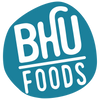
Bhu Foods Doesn't Use Erythritol, A Potentially Harmful Sweetener
The breakdown:
- A new study found a possible link between erythritol (sugar alcohol) and risk of heart attack and stroke from blood clots
- Erythritol is a sweetener used for many reduced-sugar foods, and can be added to common sugar-free sweeteners like stevia and monk fruit
- No, Bhu Foods products do not contain erythritol. We use organic monk fruit without erythritol or other sugar alcohols.
- Erythritol occurs naturally in many whole foods, but is added in potentially unsafe levels to many foods marketed as keto or to diabetics.
- Always check the nutrition label of the foods you buy to see if they include sugar alcohols.
A new study released last month (February, 2023) in Nature found an association between the popular sugar-free sweetener erythritol (a sugar alcohol) and increased risk of the kind of blood clots that can cause heart attacks or strokes.
Even more concerning, the study found that people with the highest levels of erythritol in their blood (in this case, the top 25% of erythritol levels versus the bottom 25%) were twice as likely to suffer a heart attack or stroke.
“The degree of risk was not modest,” according to Dr. Stanley Hazen, the lead author of the study and director of the Center for Cardiovascular Diagnostics & Prevention at the Cleveland Clinic Lerner Research Institute.
To be sure, the results right now only show an association, not substantive proof. Still, the researchers are alarmed by their findings.
One of our goals at Bhu Foods is to help curb the rising rates of chronic diseases, including heart disease. As such, we wanted to directly address your erythritol concerns, and let you know that we do not use erythritol or alcohol sugars of any kind in our foods.
Does Bhu Foods use Erythritol?
No. Absolutely not.
We already made that clear above, but considering the level of customer concern, we felt it was worth restating.
From our business model to our brand values, we are committed to using the cleanest, highest quality, and healthiest ingredients that we can source while still providing delicious, nutritious snacks. We really do live, breathe, eat, and preach healthy diets and lifestyles. And we care deeply about the health, wellbeing, and satisfaction of our customers. From the products we make, to the ingredients we use to make them, to how we operate as a business—we always have your best interest at heart.
Even though we do use organic monk fruit as one of the main sweetening ingredients in our products, our sources are completely free of erythritol and other sugar alcohols.
Just look at the nutrition label of any of our products to check for yourself. We make this easy: every product listing we have features a nutrition label so you can see every calorie, every ingredient, and every gram of every thing in our products. If it’s not on our label, it’s not in our food.

What Is Erythritol?
Erythritol is a sugar alcohol. It’s commonly used to add bulk (weight and size) to certain foods, or to sweeten sugar-free sweeteners like stevia, monk fruit, and other sugar-free and sugar-reduced sweeteners, even those used in keto-based products.
Despite this recent study, the US Food and Drug Administration labels erythritol as “generally recognized as safe” (GRAS). It’s not the first time GRAS ingredients have been discovered as harmful, and unfortunately it probably won’t be the last time; many sugar alcohols and other sweeteners have simply not been studied long enough to confidently determine their safety, especially with prolonged use.
That ambiguity is a big reason Bhu Foods only uses monk fruit without erythritol or other sugar alcohols in our ingredients.
What Foods Have Erythritol?
This is where things get complicated. Erythritol is found naturally in many whole foods, including grapes, watermelon, peaches, pears, and even mushrooms. It’s also found in fermented foods like beer and wine, cheese, soy sauce, and even sake.
Beyond whole foods, erythritol is commercially produced as an additive or sweetener in a wide range of baked products, drinks, chewing gum, candy, sweetener packets, and other products.
Though the FDA requires brands to specify on nutrition labels the type of sugar alcohols in a product (if any), sugar alcohols don’t always have to be reported on the nutrition label.
What?!?!
Yeah… I know… it’s silly. Brands only have to report sugar alcohols if their products make claims regarding sugar content or sugar alcohols.
Like Bhu Foods. We’re always talking about how our products are low-sugar or sugar-free, and how we never use added sugars or sugar alcohols. Because we make these claims, we’re required to list any sugar alcohols and the amounts thereof in our ingredients and nutrition labels.
As you know by now, we do not use sugar alcohols, including erythritol, in our products, so you’ll see big fat 0s next to “Added sugars” and “Sugar alcohols” on our labels.
Final Thoughts
The dramatically heightened risks of heart attack and stroke associated with high erythritol intake is certainly something to be concerned about, even if it’s primarily for those already at risk of heart disease.
Though this heightened risk is not proven, at this time it remains probable. Therefore, we recommend playing it safe and erring away from products with “reduced sugar”, sugar alcohols, or added sugars. To do this, we strongly encourage you to always check the nutrition labels of foods you’re considering buying.
And remember, Bhu Foods products do not contain any erythritol or other sugar alcohols. We’re proud to offer the cleanest, most nutritious, and flavorful products we can. If you have any questions, just reach out!.











